Australian Olympic Committee CEO Matt Carroll warns of $2 billion black hole in funding
Anthony Albanese faces the same dilemma that every other ‘sports-loving’ PM has faced, whether or not to properly fund sports that don’t get a lot of publicity and photo opportunities.
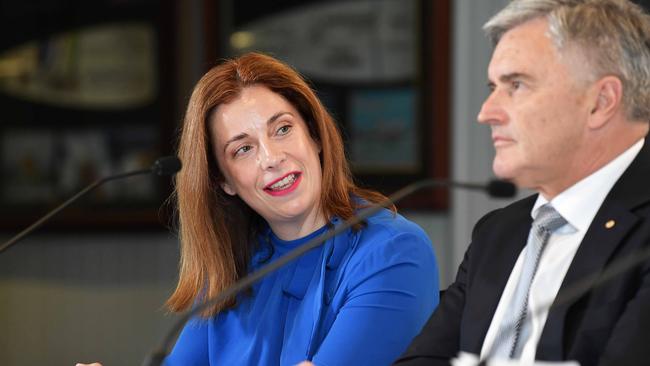
Sport
Don't miss out on the headlines from Sport. Followed categories will be added to My News.
Like every Australian Prime Minister that has come before him, Anthony Albanese is never far away from the cameras when his favourite sporting teams are playing.
A lifelong member of the South Sydney Rabbitohs who also follows cricket and tennis closely, there’s little doubt the Labor leader is a fair dinkum fan.
But now Albanese is facing the same dilemma that every other ‘sports-loving’ PM has faced – and invariably dropped the ball on – whether or not to properly fund sports that don’t get a lot of publicity and photo opportunities.
As the Australian Olympic Committee chief executive Matt Carroll told the National Press Club on Monday, Australia’s smaller, traditional sports are heading towards a financial cliff because of a $2 billion reduction in federal government funding.
The former boss of Australian rugby and soccer, Carroll called for an end to the practice of politicians handing out massive sums of money to already mega-rich professional sports while ignoring the rest.
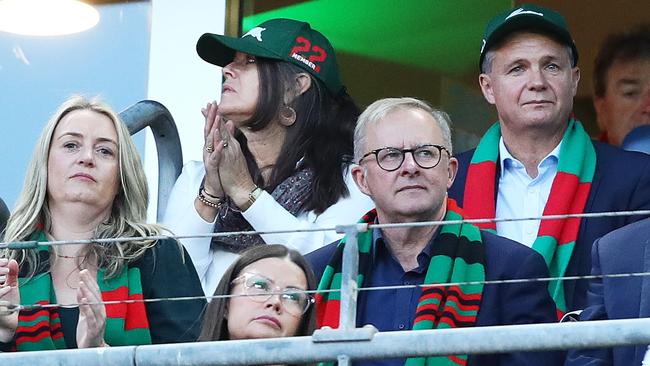
As far as Carroll is concerned, there’s no time to waste to prevent Brisbane 2032 from turning into a massive failure, but past experience suggests he may be waiting a while for an answer.
Josephine Sukkar the chair of the government funded Australian Sports Commission, offered a diplomatic response to Carroll’s plea for more money and the creation of a dedicated department of sport.
“Through the Australian Sports Commission, the Australian Government is investing $337.9 million into high performance, participation and community sport this financial year,” she said.
“Sport has a wide range of physical, mental and social benefits for all Australians, and we must continue to work collaboratively with the Government as part of the Green and Gold decade towards Brisbane 2032.
“All sector stakeholders signed up for Australia’s 2032+ High Performance Sport Strategy, so we need to maintain a united front to achieve sustained success that ensures our athletes win well both on and off the field.
“Brisbane 2032 can’t be seen as the end game, rather a moment in time as we build sustained success throughout all of Australian sport.”
An Albanese Government spokesperson said a review late last year was currently being applied to the future funding investment, but added the focus was not just medals.
“At the instigation of the Minister for Sport a rapid review was undertaken of Government sporting responsibilities at the federal level,” the spokesperson said.
“The review, conducted between October and December 2022, looked at the Office for Sport within the Department of Health and Aged Care, the Australian Sports Commission, Sport Integrity Australia, the National Sports Tribunal, and the Australian Sports Foundation.
“The Australian Sports Commission (ASC) is currently provided hundreds of millions of dollars each year.
“Work is already underway on modelling the appropriate investment in sport to support the delivery of Australia’s High Performance Sport Strategy.
“It is premature to be making claims about a funding shortfall when this comprehensive process to model future investment is proceeding.
“National sport outcomes will be measured beyond medals while ambitious performance goals will be balanced with a culture that prioritises physical, mental, emotional, and cultural wellbeing.”
Carroll’s call to arms was music to the ears of the leaders of some Australian Olympic sports, but no-one was holding their breath waiting for a reply.
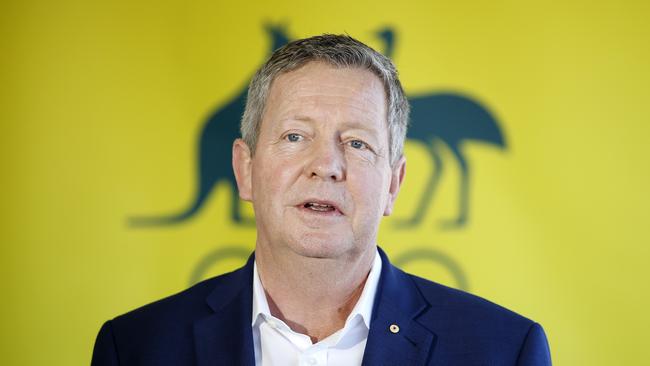
David Pryles, who is the CEO of Hockey Australia, said he supported Carroll’s comments now that his own sport is relying heavily on sponsorship money after a funding reduction.
“We want some structure around investment in sport. We want some direction. We‘re very supportive of what he had to say,” Pryles told News Corp.
“Sport is the lifeblood of our community, both metro and regional, social connection, physical connection.
“So we‘re not asking for a lot compared to a lot of investment in professional sports. Really, it’s just a pimple on the health portfolio so we’d like them to come to the table and have a chat with us.
Equestrian Australia chief executive Darren Gocher said increased funding was critical if Australia wants to succeed at Brisbane.
“I don‘t think people necessarily understand the benefits that sport brings or what’s required to be able to be successful,” he said.
“I know it‘s two weeks every four years, but there’s another three years and 50 weeks to go in the sport. The majority of professional sports have the benefit of being front and centre every weekend whereas we just don’t have that and we’re never going to get it.”
Kitty Chiller, who competed for Australian in modern pentathlon at the Sydney 2000 Olympics before going into becoming one of the country’s most respected sports administrators, also said the investment in so-called smaller sports could pay piff big.
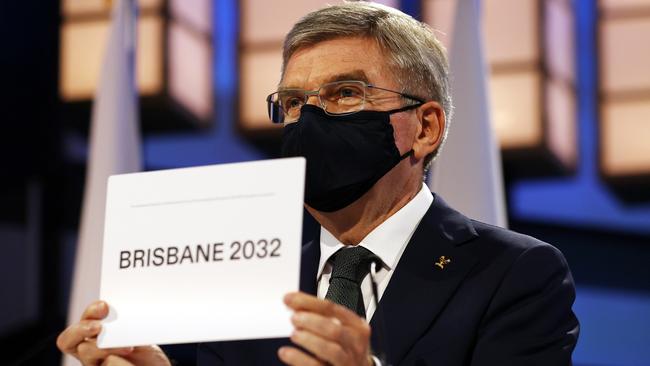
“The thing that I think a lot of people forget about Sydney and why we did so well in Sydney is because we won medals across 17 sports, taekwondo, archery,” she said.
“It was a smaller sports at the time and that‘s where the investments needed because they’re not getting the sponsorship dollars, they’re not getting the media rights dollars.
“That‘s going to make the difference in performance. It’s not just giving money to those who are already getting money, it’s about not forgetting about sports as well.”
With Victoria set to host the Commonwealth Games in 2026, Commonwealth Games Australia CEO Craig Phillips joined Carroll in calling for more government help.
“Australia’s success at Birmingham 2022 was not the product of luck or a fluke,” Phillips said.
“It took years of preparation, certainty in funding and a broad commitment from the Federal Government and its agencies to invest in and support program sports and their athletes as they strived to win gold for Australia.”
$2 BILLION ‘BLACK HOLE’ THREATENING AUSTRALIAN SPORT
The Australian Olympic Committee (AOC) has called on the federal government to create a new national department dedicated solely to sport to save the industry from financial disaster ahead of the Brisbane 2032 Games.
In a thinly-veiled rebuke of all the governments and grandstanding politicians who have reneged on their promises to properly fund sport, AOC chief executive Matt Carroll said it was time they stumped up the cash and introduced radical reforms to protect the sector.
In a speech at the National Press Club in Canberra on Monday, Carroll said the government’s drastically reduced investment in recent years had left the sports industry facing a $2 billion ‘black hole’.
“Successive sports plans over many years have not achieved their ambitions because they have been funded to fail,” Carroll said.
“On the forward projections based on the work we have done with our 44 member sports, Australian sport will fall over a financial cliff.
“Sports are fighting each other for a share of a cake that keeps getting smaller.”
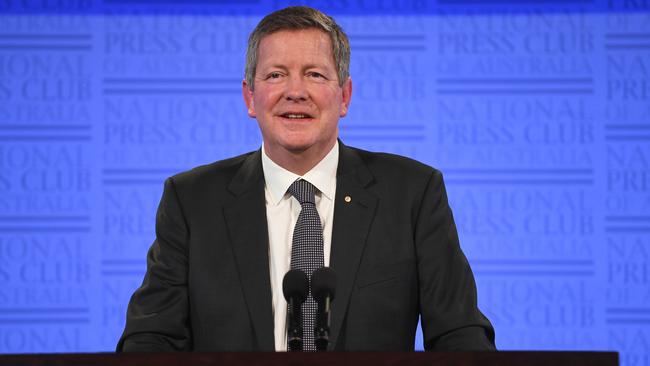
Included among several groundbreaking recommendations to fix the worsening funding shortfall, the AOC called for the establishment of a separate, dedicated federal sports department — ending the current practice where the sports portfolio is bundled together with health and aged care.
“Sport is too important to be part of an omnibus or alphabet collection of other portfolios and not as the forgotten poor cousin hidden away in the Department of Health,” Carroll said.
“For an industry that brings a return of positive economic contributions to the country, with a total economic value to the national economy of approximately $83 billion annually and a return to Australian communities of at least $7 for every $1 invested in sport, it is difficult to fathom why we don’t have a Department of Sport already. It is clearly an opportunity gone missing – thus far.”
Carroll’s call to arms comes at a pivotal time for Australian sport.
Despite the impressive number of medals that Australian athletes have won at recent Olympics, Paralympics and Commonwealth Games, industry insiders have likened the funding impasse in Australian sport to the ‘Hunger Games’.
Although they might look a million dollars when they are on television singing the national anthem, it’s the worst-kept secret in sport that some of the country’s best known athletes are surviving on less than minimum wage and are struggling mentally.
A special investigation by News Corp Australia found that many athletes are battling depression and facing financial ruin because they’ve been left to pick up the bill for the honour for wearing the green and gold on the international stage.
In 2018, more than 300 current and retired Olympians and Paralympians signed a petition pleading for the government to reverse the funding cuts that are strangling high-performance sport.
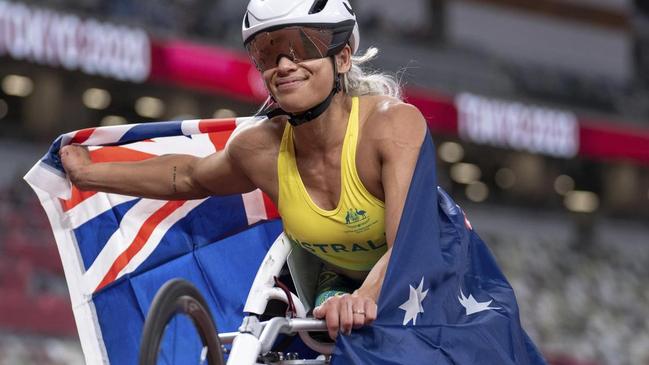
Carroll himself went cap in hand to the national capital, asking the government to stop slashing public investment in sport – only to be given assurances that amounted to little more than lip service.
That was four years ago but with the clock now ticking on all the public-funded mega events heading to Australia in the next decade, Carroll has doubled down with a warning of the looming catastrophe unless urgent action is taken.
“I did say at the time that turning around the decline was a long game – but, we are now deep into the second half and sadly the score is going in the wrong way,” Carroll said.
“Successive national sports plans under successive national governments of different political persuasions, have done nothing to address the investment in sport to achieve the opportunities for the Australian community that they identified.
“Unless this situation is rectified, Australia will be staring failure in the face at the 2026 Commonwealth Games and the Brisbane 2032 Olympic and Paralympic Games because our home team will have been undermined by inaction.”
In his latest address to the National Press Club, Carroll offered a range of solutions – including calls to restore the Australian Institute of Sport (AIS) to its past glories when it was the envy of the world because of its pioneering research in sports science, medicine, technology and data.
He also urged the government to work in close partnership with sporting organisations to ensure the benefits go to everyone in the community, not just professional and elite competitors.
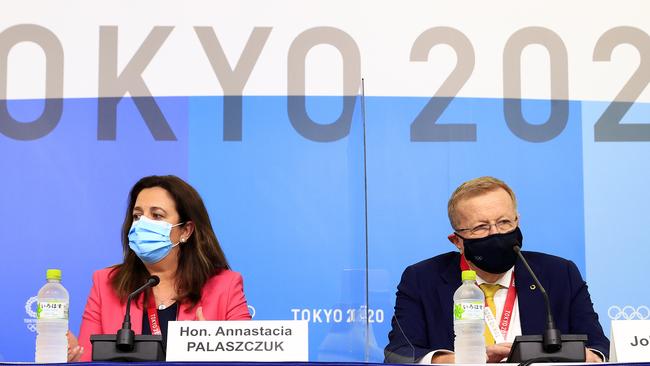
“To be clear, this is not funding for the AOC. We ask for none, but it is investment directly to the sports so they can fulfil their mission for the Australian community,” he said.
“Every national sports plan recognises the enormous value of sport in tackling the crises in obesity, chronic diseases including mental health problems.
“Plus, the value of sport in bringing communities together, creating social harmony, creating economic benefit and helping a generation of young people negotiate the future.”
The AOC’s full list of proposals were:
* A Statement of Purpose for sport which clearly defines where sport sits as a national priority.
* A new sport investment model that ensures a holistic view of sport that yields a measurable and objective return on investment and which improves transparency and accountability.
* A stand-alone Department of Sport, incorporating the Australian Sports Commission, Sport Integrity Australia and the National Sports Tribunal.
* A partnership between sport and government with sport contributing to policy development across multiple portfolios.
* Investment in the Australian Institute of Sport to transform it into the CSIRO of sport – a research giant supported by State and Territory sports institutes.
* A national sports events strategy to maximise the benefits of hosting major global sports events in Australia led by the new Department of Sport





